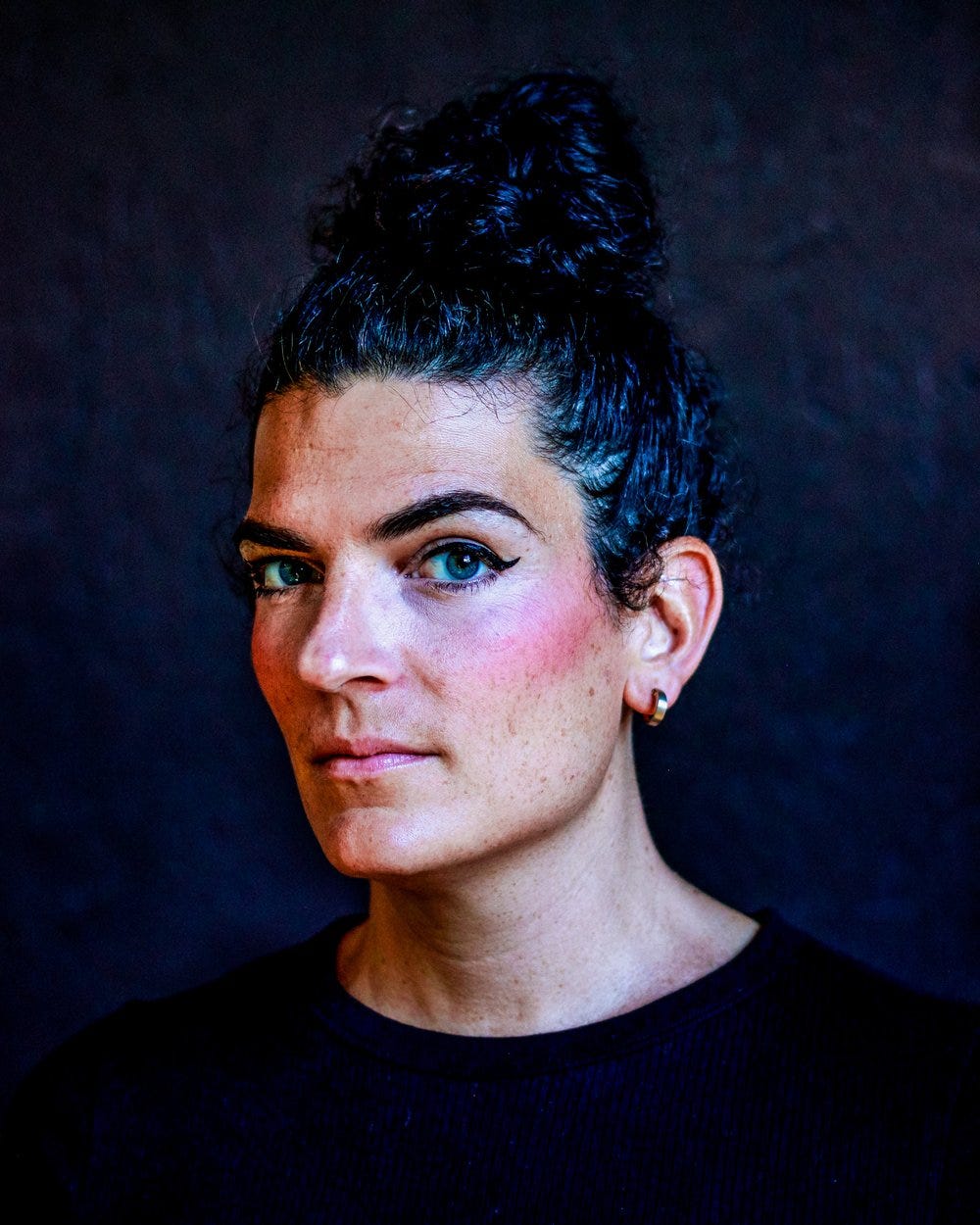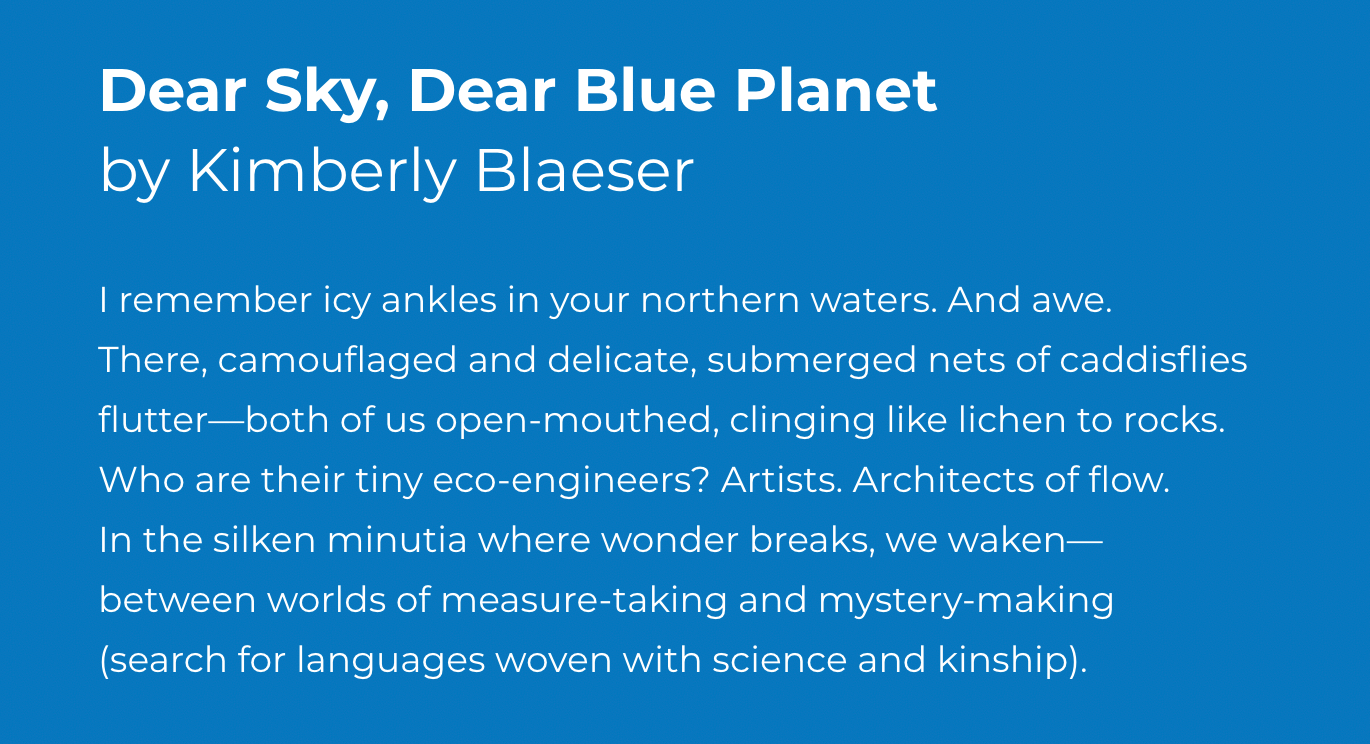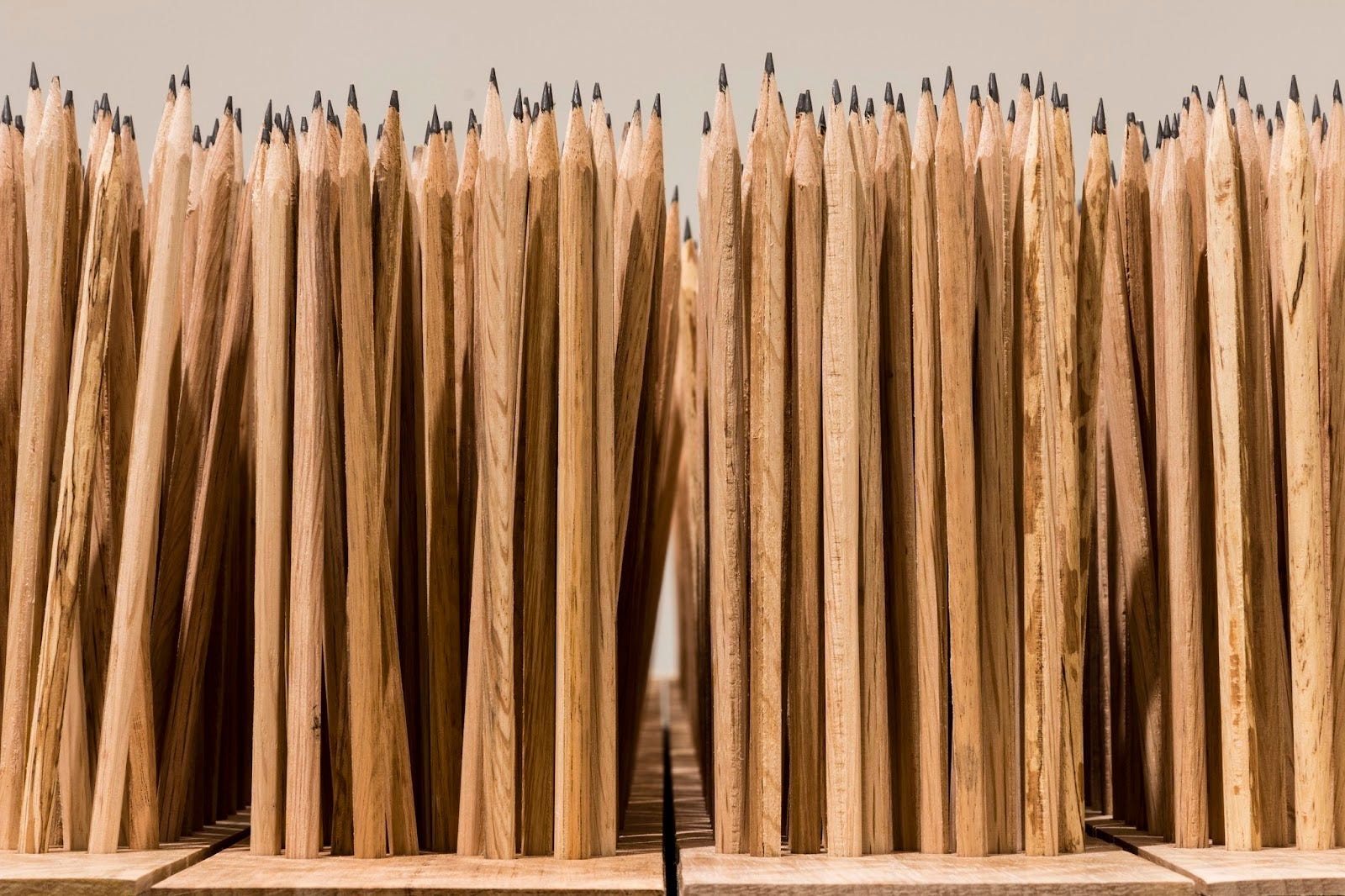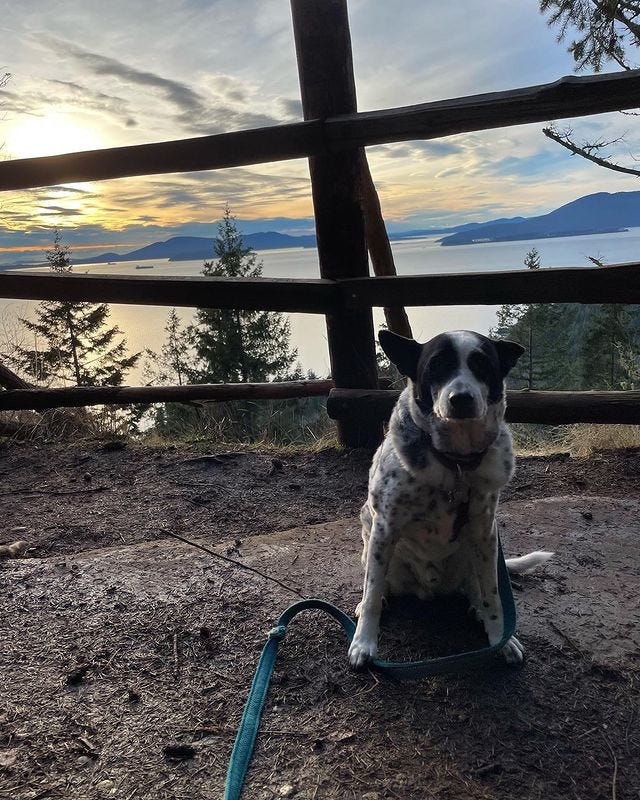You don't have to be angry to be a climate activist
Welcome back to HEATED—a newsletter for people who are pissed off about the climate crisis. Today’s bonus newsletter is a follow-up to last week’s piece on the climate scientist fired for protesting against climate action. It may be a bit, well, counterintuitive for this newsletter. But what can we say. We like challenging the norm. Hope you enjoy—and if you do, please consider supporting our reporting. We cannot do it without you. You don't have to be angry to be a climate activistAnger and disruption may get the most media attention, but solutions and beauty-focused climate activism is just as important, argues artist and climate scientist Mika Tosca.
Last week, HEATED wrote about two climate scientists who interrupted a panel at the world’s largest Earth science conference to protest inaction on climate change. One of those climate scientists, Rose Abramoff, lost her job at Oak Ridge National Laboratory as a result of the protest. In response, Abramoff wrote a viral New York Times op-ed about her experience, and lots of media coverage soon followed—including ours. Missing from most of that coverage, however, was context about the interrupted event: the American Geophysical Union’s first-ever panel about the intersection between art and climate science.  What bothered me about the NYT article & the discussion around it was the implication that there weren’t other meaningful expressions of climate action & activism at AGU. That the protest occurred right before this plenary is important context. https://t.co/sm9sSXEaJR Many scientists who attended the event told HEATED they were disappointed that the panel’s solutions-focused message had been eclipsed by the protest. The panelists had included a diverse range of voices, including indigenous poet Kimberly Blaeser, and panel moderator Mika Tosca, the first trans scientist to lead a plenary session at AGU. They noted that while disruption and anger are valid responses to climate inaction, there are other ways of being an activist that are just as, if not more, important. And given that our whole newsletter is for people who are angry about the climate crisis, we figured it was only fair to dig a bit deeper into that perspective. So today, we’re featuring an interview with Tosca—an associate professor at the School of the Art Institute of Chicago—about the more optimistic brand of climate activism featured at her panel. We talked about how the media’s “obsession with apocalypse narratives” can be harmful to young people; how queer history and community informs her approach; and how art can help us envision a better world. This interview has been edited for length and clarity. Arielle Samuelson: As has now gone viral, Peter Kalmus and Rose Abramoff interrupted the beginning of your panel at AGU. How did you feel when that happened? Mika Tosca: I have no ill feelings towards Rose or Peter. I think that they are climate scientists who care really passionately about our planet and having a stable and habitable place to live. I just wish that we could be talking about more than just a 20 second protest. I'm really interested in the media and the press getting away from their obsession with apocalypse narratives, and conflict and fear and despair over the climate crisis. And thinking about covering other stuff, like a really cool panel, which is sort of my own type of activism. AS: Let’s talk about your type of activism. How would you describe it? MT: I approach the problem from a more optimistic perspective. I recognize that fear is a really powerful emotion, but it's not something that can sustain us as we seek to address climate change over many years and decades. So I approach the problem by centering hope, community care, and joy. We don't have to always frame the climate crisis as a story of loss and despair and apocalypse. We can frame it as a story of opportunity and world building and community. That's what I teach my Gen Zers [at the Art Institute of Chicago]. They hold so much anxiety and despair about climate change. These kids, they need hope. They need something to look forward to. Related reading: Rebecca Solnit’s powerful essay arguing for the necessity of solutions-focused storytelling. When everything is framed as an apocalypse, which the media and the press do often, it forecloses the potential for solutions and world building. What imperative is there for us to actually build a new world, if we think this one is lost and hopeless? My main student that I work with is turning 23 next month. I hear this from him a lot, [the importance of] centering joy and community and building a new world as a queer person. As queer people, we build our own worlds all the time, our own spaces just for us to be safe. I think taking some of that and transporting it on to the climate crisis could do a lot of good.
AS: You’ve also said the panel was a form of activism for you. Why do you believe it’s important to have artists involved in solving the climate crisis, as well as scientists? MT: We need to think about building a new and better world. That requires us to use our imaginations to explore potential possibilities, solutions, and outcomes. What better way to help us do that than art, which is able to reach the human imagination, the human psyche, in ways that traditional science hasn't always been able to do? Data moves scientists emotionally, but data doesn't move the average person emotionally. Art is really effective at that. So I think there's a space for art to communicate science and help move us in the direction of imagining a better future. 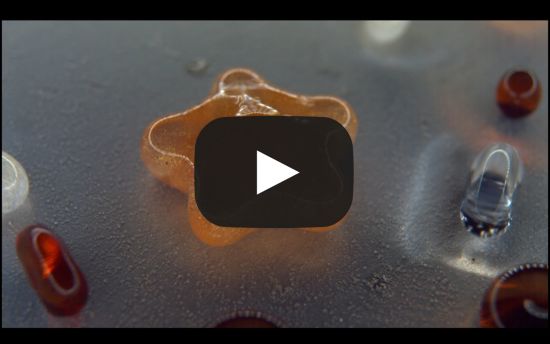 (Water Organoids, a video created for AGU by artist and physicist Baudouin Saintyves and sound artist Kiku Hibino. Both artists were on the art and science panel.) AS: As a result of interrupting your panel, Rose was fired from her job as a federally-funded scientist. What do you think of the idea that scientists should remain neutral, and only use their voice on their personal time? MT: I just really fundamentally disagree with that. I think that science is inherently political. It’s been politicized whether we acknowledge it or not. And it's conducted by human beings. We are humans trying our absolute best to uncover the truth about big questions. So I don't think it detracts from our work to also acknowledge that there's something going on that's a big deal, and we should do something about it. There are rules if you work for a government lab that maybe you have to follow. But do I agree with those rules? Not always. I personally do not believe that being a vocal activist takes away from my science or in any way harms the scientific perspective I bring. If you look at your history, science wasn't always like this. Scientists were philosophers, they were artists. And if you look in other cultures, especially indigenous cultures, the distinction between scientists and everybody else isn't so stark. It's really a Western Global North phenomenon. AS: Do you participate in climate protests yourself? MT: I've done disruptive protests where I’ve marched, and I've written letters to Congresspeople and my institutions. I also have a big role at the school, and higher ed in general. It's a different kind of activism than Rose does. I'm not chaining myself to fences. Not that I'm against it; it's just not what I have time to do. But I do consider myself an activist.
AS: Do you think that the way AGU reacted will have an effect on how safe scientists feel in the future to launch a similar protest? MT: I don't know, but I hope not. I hope that people keep fighting the good fight and pushing. There's going to be bumps along the way. But I hope that people stay focused on the main goal, which is solving the climate crisis. AS: I saw that you and Rose appeared together on the BBC’s podcast Science In Action. So it seems like you connected afterwards. MT: We've been in contact, and actually, we agree on a lot. We're both very committed to being climate activists and thinking about climate change through an activist lens. We've definitely been brainstorming about tactics and approaches and ways that we can collaborate on these big issues. I'm looking forward to it, actually. Obligatory fundraising note: HEATED is an independent climate publication that is 100 percent funded by readers—and most of those readers have come to us from Twitter. Now that the platform is hanging by a thread, a critical source of our income is threatened. If you value this newsletter and can afford it, there’s never been a better time to lend us your financial support, so we can invest in new and better ways to get climate accountability journalism to the public. Catch of the Day: Fish has been really generous lately by showing you all of his furry friends. But today he wants to hog the spotlight for himself, and also show you this great sunset view he found. If you’re not following Fish on Instagram, WYD? Want to see your furry (or non-furry!) friend in HEATED? Send a picture and some words to catchoftheday@heated.world. You're currently a free subscriber to HEATED. For the full experience, upgrade your subscription. |
Older messages
What really happened at AGU?
Friday, January 27, 2023
A protest at the world's largest Earth science conference led to a high-profile climate scientist's firing. Was it justified?
Three small things
Thursday, January 26, 2023
Just a few updates for you.
Edelman's climate cop-out
Friday, January 20, 2023
The world's biggest PR firm vowed to drop “environmentally irresponsible” clients. Has it?
This is all the gas industry's fault
Friday, January 20, 2023
The gas industry's marketing has influenced American culture as quietly as the fumes from their much-beloved stoves.
Why gas stoves actually matter
Friday, January 20, 2023
Like plastic straws, gas stoves represent an easy way to begin talking about a massive and generally unseen climate problem.
You Might Also Like
Chicken Shed Chronicles.
Sunday, January 12, 2025
Inspiration For You. ͏ ͏ ͏ ͏ ͏ ͏ ͏ ͏ ͏ ͏ ͏ ͏ ͏ ͏ ͏ ͏ ͏ ͏ ͏ ͏ ͏ ͏ ͏ ͏ ͏ ͏ ͏ ͏ ͏ ͏ ͏ ͏ ͏ ͏ ͏ ͏ ͏ ͏ ͏ ͏ ͏ ͏ ͏ ͏ ͏ ͏ ͏ ͏ ͏ ͏ ͏ ͏ ͏ ͏ ͏ ͏ ͏ ͏ ͏ ͏ ͏ ͏ ͏ ͏ ͏ ͏ ͏ ͏ ͏ ͏ ͏ ͏ ͏ ͏ ͏ ͏ ͏ ͏ ͏ ͏ ͏ ͏ ͏ ͏ ͏ ͏ ͏ ͏ ͏ ͏
"With a Copy of Shelley" by Harriet Monroe
Sunday, January 12, 2025
Behold, I send thee to the heights of song, January 12, 2025 donate With a Copy of Shelley Harriet Monroe Behold, I send thee to the heights of song, My brother! Let thine eyes awake as clear As
What if 2025 was your best year yet?
Sunday, January 12, 2025
Or how I am trying to invite just a little more optimism into my life ͏ ͏ ͏ ͏ ͏ ͏ ͏ ͏ ͏ ͏ ͏ ͏ ͏ ͏ ͏ ͏ ͏ ͏ ͏ ͏ ͏ ͏ ͏ ͏ ͏ ͏ ͏ ͏ ͏ ͏ ͏ ͏ ͏ ͏ ͏ ͏ ͏ ͏ ͏ ͏ ͏ ͏ ͏ ͏ ͏ ͏ ͏ ͏ ͏ ͏ ͏ ͏ ͏ ͏ ͏ ͏ ͏ ͏ ͏ ͏ ͏ ͏ ͏ ͏ ͏ ͏
This Iconic Early 2000s Jewelry Trend Is Making A Comeback
Sunday, January 12, 2025
Go bold. The Zoe Report Daily The Zoe Report 1.11.2025 This Iconic Early 2000s Jewelry Trend Is Making A Comeback (Shopping) This Iconic Early 2000s Jewelry Trend Is Making A Comeback Go bold. Read
Looking for Better Sleep in 2025? Our Favorite Mattresses Are $300 Off Right Now
Saturday, January 11, 2025
If you have trouble reading this message, view it in a browser. Men's Health The Check Out Welcome to The Check Out, our newsletter that gives you a deeper look at some of our editors' favorite
You're Probably Checking Your 401(k) Too Often
Saturday, January 11, 2025
Think of New Habits As Skills. Staring at the number won't make it go up. Not displaying correctly? View this newsletter online. TODAY'S FEATURED STORY You're Probably Checking Your 401(k)
Love, Safety, and Connection in Times of Climate Distress
Saturday, January 11, 2025
Free Meditation ͏ ͏ ͏ ͏ ͏ ͏ ͏ ͏ ͏ ͏ ͏ ͏ ͏ ͏ ͏ ͏ ͏ ͏ ͏ ͏ ͏ ͏ ͏ ͏ ͏ ͏ ͏ ͏ ͏ ͏ ͏ ͏ ͏ ͏ ͏ ͏ ͏ ͏ ͏ ͏ ͏ ͏ ͏ ͏ ͏ ͏ ͏ ͏ ͏ ͏ ͏ ͏ ͏ ͏ ͏ ͏ ͏ ͏ ͏ ͏ ͏ ͏ ͏ ͏ ͏ ͏ ͏ ͏ ͏ ͏ ͏ ͏ ͏ ͏ ͏ ͏ ͏ ͏ ͏ ͏ ͏ ͏ ͏ ͏ ͏ ͏ ͏ ͏ ͏ ͏ ͏ ͏ ͏
Weekend: How to Tell Guests to Get a Hotel 🏨
Saturday, January 11, 2025
— Check out what we Skimm'd for you today January 11, 2025 Subscribe Read in browser Header Image But First: a hydrating, tinted lip treatment we love Update location or View forecast EDITOR'S
Dandori Time!
Saturday, January 11, 2025
Lessons from a video game ͏ ͏ ͏ ͏ ͏ ͏ ͏ ͏ ͏ ͏ ͏ ͏ ͏ ͏ ͏ ͏ ͏ ͏ ͏ ͏ ͏ ͏ ͏ ͏ ͏ ͏ ͏ ͏ ͏ ͏ ͏ ͏ ͏ ͏ ͏ ͏ ͏ ͏ ͏ ͏ ͏ ͏ ͏ ͏ ͏ ͏ ͏ ͏ ͏ ͏ ͏ ͏ ͏ ͏ ͏ ͏ ͏ ͏ ͏ ͏ ͏ ͏ ͏ ͏ ͏ ͏ ͏ ͏ ͏ ͏ ͏ ͏ ͏ ͏ ͏ ͏ ͏ ͏ ͏ ͏ ͏ ͏ ͏ ͏ ͏ ͏ ͏ ͏
“Winter Night” by Amos Wilder
Saturday, January 11, 2025
O magical the winter night! Illusory this stretch / Of unimaginable grays January 11, 2025 donate Winter Night Amos Wilder O magical the winter night! Illusory this stretch Of unimaginable grays; so


